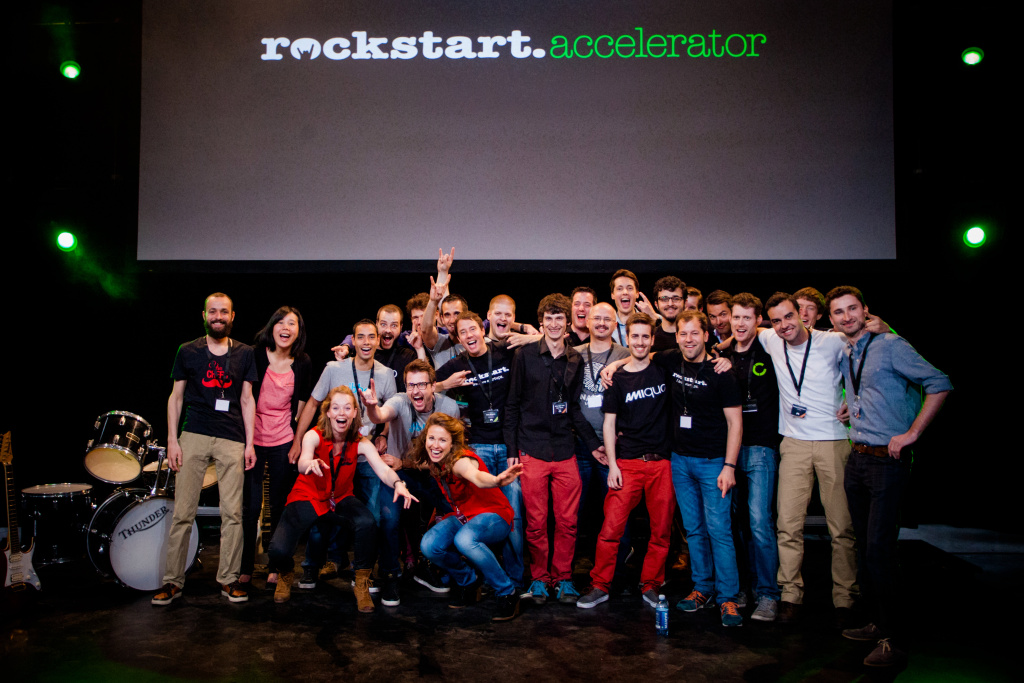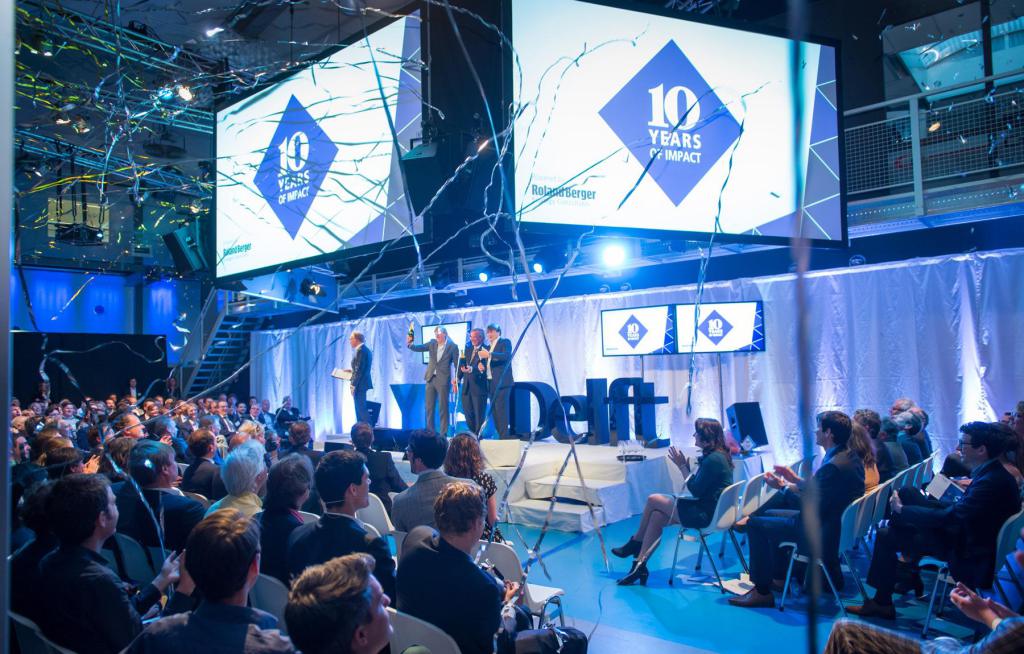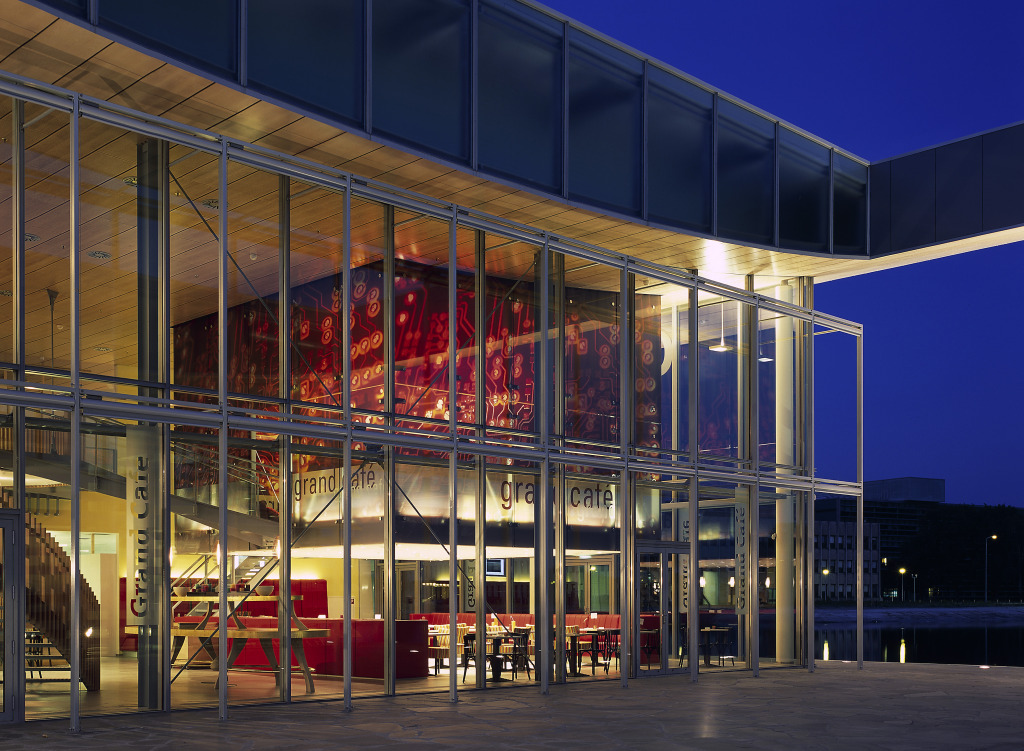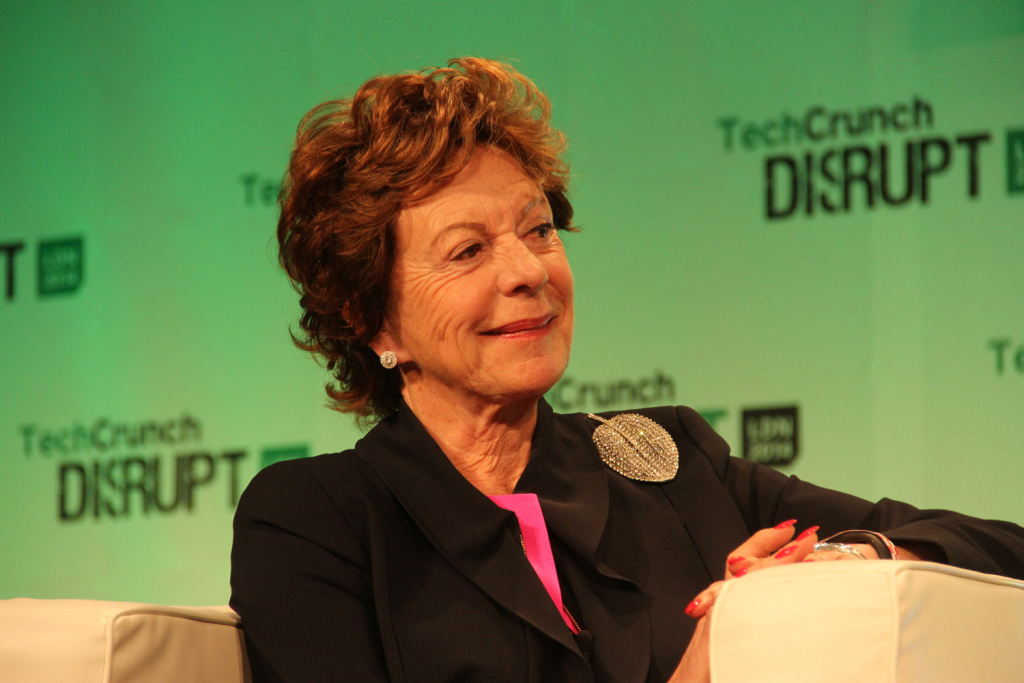It’s a fascinating time to take stock of startup innovation in the Netherlands, a rare turning point where you can watch the hard work of the past give way to the immense promise of the future.
Behind London and Berlin, the Dutch startup scene is already considered to be one of the most prominent in Europe. (If it feels unfair to weigh an entire country against individual cities, consider that the Netherlands has 17 million people crammed into an area half the size of South Carolina.)
And yet, to herald Dutch innovation as it currently stands is to unveil a project that’s still only just underway.
The Dutch, on the whole, speak better English than probably any non-native population in continental Europe, one of the hallmarks of a consistently excellent education system that also scores among the highest worldwide in math and science metrics. Strong economic foundations in industry and commerce offer a dependable framework for continued growth.
And under the proven leadership of Neelie Kroes, the so-called “Internet-Tsar” of Europe, the government’s recent commitments to tech entrepreneurship may mark a bellwether of a new era in startup proliferation.
The early strengths of the Netherlands’ budding startup scene — software, space, smart energy, financial tech, digital health, sharing technology and 3D printing, among others — coincide with the overall direction of global innovation. And the Dutch prowess for high-tech hardware, in particular, has drawn investment interest not just from the United States and Europe, but also from China.
Netflix and Uber both recently decided to establish their European headquarters in Amsterdam. And given the Netherlands’ favorable tax code, strong international travel infrastructure, and newly released startup visa, you can expect other global brands to follow suit.
All of this progress, again, is many years in the making. But it’s hard to look at the Netherlands and not get the sense that 10 or 20 years from now, people will be pointing to this moment and saying the same thing.
Startup Origin Story
Talk to the people at the heart of the Dutch startup scene about how things got to this point, and the first two names you’ll hear are almost always the same. Founded in 1991 and 1996, respectively, Booking.com and TomTom are among the most successful Dutch companies in any field.
Booking.com has gone through two nine-figure acquisitions and facilitated tens of millions of reservations since its launch as a foundational travel site. TomTom, which once made watches and basic GPS devices, now has more than 4,000 employees and high-tech software products in 41 countries. Both are still based out of Amsterdam, but the startup scene around them has changed dramatically in the meantime.
For many years, industry leaders told me, growth was plodding and disjointed. The Netherlands has a strong tradition of entrepreneurship, but the transition toward startup culture was a slow one, and it was years before the corresponding success stories started to emerge.
2006 brought a watershed moment, in that respect: The Next Web held its first conference in Amsterdam. The now-annual event offered budding local leaders a unique window into the global startup world, and offered the world a unique window into the potential waiting to be tapped in the Netherlands.
To this day, no business gathering has done as much to foster international transactions or showcase the Netherlands and its capital.
The global financial crisis of 2008 was a doubly sharp blow, arriving just as the Netherlands’ startup scene was starting to take coherent form. But in the past five years, Dutch entrepreneurs have bounced back in a big way. Where name-brand multinationals like Heineken, Shell and Phillips have struggled to grow, startup entrepreneurship has taken root, giving younger, more agile companies the support system they need to flourish.
In 2011, Rockstart, one of the country’s most prominent incubators, accepted its first class.Startupbootcamp, founded a few months later, has gone on to become one of the most well-recognized names across Europe.
At around this same time, a steady, decade-long shift within the Netherlands’ major universities began to manifest in strong, localized ecosystems that retain more and more of the tech talent that previously went to more traditional industries.
As is usually the case, the government’s involvement lagged behind the rest of the market, butStartupDelta, a publicly backed initiative launched in 2014 and led by Neelie Kroes, has taken on an important coordinating, supporting and promotional role within the broader ecosystem.
Neelie Kroes
Dutch companies have seen an encouraging degree of interest from foreign firms. For instance, with more than 25 million active users, WeTransfer, recently brought in $25 million in Series A funding from a European venture firm, at a valuation said to reach as high as $200 million.Today, startup leaders we spoke to estimate that the Netherlands sees more than 100 deals of under $500,000 a year, and all indications are that these transactions will only continue to flourish. Through the first quarter of 2015, 33 Dutch companies had raised more than $88 million — with the median deal standing at almost $1.15 million — making it the most prolific quarter on record in terms of sheer volume, according to Startup Juncture. (Check out Founded in Holland for a good survey of the scene.)
More importantly in the long run, there are as many as 15 locally based venture capital firms active in the market, as well, a handful of which are reliable sources of Series B funding or higher.
Amsterdam: The Capital
Only someone who’s never been to Amsterdam could associate it with the Red Light District and legal pot, instead of with the museums, restaurants, architecture, parks and bike-friendly cobble-stoned canalways that make the Dutch capital one of the culturally richest cities in Europe.
It may seem superficial to say so, but one of the biggest advantages Amsterdam has in the tech world is that it’s a place where people want to live — and can actually afford to, even on a startup budget. Local leaders recognize how attractive their city is, and they’re not shy about selling it on those terms.
“We have a huge labor pool coming to Amsterdam, because it’s a beautiful city that’s still affordable,” Bas Beekman, the program director at Startup Amsterdam, told us. “When people are thinking about where to go to work, or where to go to start a business, that’s important.”
Some organizations have gone to additional lengths to incorporate the city itself into their business cultures.
Wherever you turn, there is a certain buzz to the activity, the sense that Amsterdam is the perfect place to be and the confidence that what’s happening there matters.
With 67 companies working alongside one another in 6,000 square-meters of ultra-modern office space in the heart of the city, B.Amsterdam stands as one of the physical and spiritual centers of the Amsterdam startup scene. The view from the rooftop park is the envy of the city’s business community, and the facility itself hosts a design academy, gym and post office, and events ranging from art exhibitions to business conferences.
Nestled along one of Amsterdam’s scenic canals, Rockstart is a leading incubator with prime canal real estate. After just two years of activity, its 20 graduates have raised $19 million in funding and created 150 permanent jobs. Founders Oscar Kneppers, Rune Theill and Don Ritzen are widely acknowledged as pioneers of Amsterdam’s startup scene.
Startupbootcamp, an accelerator based in B.Amsterdam, hosts one of the Netherlands’ liveliest demo days and was founded by Patrick De Zeeuw, Alex Farcet, Carsten Kolbeck and Ruud Hendriks in 2010. It also has placed a special emphasis on “smart city and living space” solutions, with titles like smart energy, smart building and smart retail leading its upcoming course list.
ACE Venture Lab has taken a different approach to enmeshing itself within the city. By forming pipelines with leading educational institutions, like the University of Amsterdam, it has drawn a diverse range of young entrepreneurs into its upcoming class.

The Next Web, which includes a publication that today is led by Martin Bryant, has grown into a 30-person umbrella company that puts on conferences, academic lessons and more.
Wherever you turn, there is a certain buzz to the activity, the sense that Amsterdam is the perfect place to be and the confidence that what’s happening there matters. “What we say is that if you can’t make it in Amsterdam, you can’t make it Europe,” said Beekman. Between its long history of entrepreneurship and small but savvy market, known for trend-setting early adoption of tech products in particular, Amsterdam is “an ideal launching pad for startups.”
It also helps that Amsterdam is the focal point of Dutch venture capital.
Prime Ventures, Van den Ende & Deitmers Venture Capital Partners, and henQ are the city’s leading firms. And with $167 million in European Union funds to distribute, the Dutch Venture Initiative is another important contributor.
Between them and Nick Steven, the organizer of Startup Weekend Netherlands, and Leon Pals, the chairman of the Startup Foundation Experience, a major international event, Amsterdam has a solid foundation to work off.
But on the whole, venture funding is still in short supply, as it is in so many early startup scenes. “We’re one of the richest countries in the world, but we don’t really invest in startup yet,” said Beekman, who’s happy to see the local government stepping up to provide institutional backing.
Additional leaders include Jeroen van Duffelen of ACE Venture Lab; Boris Veldhuijzen van Zanten and Patrick de Laive, co-founders of The Next Web; Amsterdam’s Deputy Mayor Kajsa Ollongren, who oversees Startup Amsterdam; Arthur Kosten, who founded Booking.com along with former CEO Kees Koolen and CMO Pieter van Doorne; Maarten Beucker Andreae, who sold his marketplace to Ebay; and Marcel Beemsterboe.
Delft: Student Center
Amsterdam is, and likely will continue to be, the best measure of the Netherlands’ success in the startup world. But Delft is perhaps the best indication of where it’s headed.
With students comprising between 10-15 percent of its roughly 100,000 people, Delft is a “nerdy city and a young one,” says Wouter de Bruijne, the commercial director at YES!Delft, one of the country’s first startup incubators.
It has the largest number of student societies in the Netherlands and a leading medical school to go along with the Delft University of Technology, the country’s largest tech university.
Amsterdam is known for its software companies. Delft is all about high-tech innovation.
Engineering and hardware are among the strongest academic focuses available in the city, so it should come as no surprise that students are the driving force behind its tech scene. As their interests migrated toward entrepreneurship, so too did Delft’s.
“Ten years ago entrepreneurship wasn’t that common, but we’ve seen that shift on the university level, and from the government,” de Bruijne told us.
Funded by the Delft University of Technology, the city government and local industry interests, YES!Delft is itself a product of that process. Now entering its second decade of activity, it receives as many as 500 applications a year, from the Netherlands and across Europe, and has attracted $300 million in investment, according to de Bruijne.

“It takes 10 years,” de Bruijne says, “to build a stable tech company, and Delft is just starting to see its first batch of real successes.”
Nerdalize has pioneered a compact home-heating system that runs off computing power, converting the Internet’s waste into a sustainable living technology. Another smart energy company, Eternal Sun, has honed a patent-pending solar simulator that can be used to test renewable energy technologies, like those being developed by ABB, the first industrial robotics company to manufacture robots in the United States.
Ampelmann, meanwhile, has stuck to the traditional energy industry, building a hydraulic gangway that attaches to offshore oil rigs and compensates for wave motion.
This cross section, though limited, offers a good look at what is already becoming Delft’s defining feature. Amsterdam is known for its software companies. Delft is all about high-tech innovation.
Now, it falls on local leaders like de Bruijne to keep pushing things in that direction. “When we started, we were still trying to do everything, but we learned eventually that that wouldn’t work, and so as we matured, we learned where we fit in,” he said.
As he sees it, the future of the Dutch startup scene in general will depend on whether the Netherlands’ tightly knit cities can distance themselves enough to hone their individual characters. “The coming years will show how stable this whole innovation industry is,” added de Bruijne. “We’ll show what we can do as a country.”
Eindhoven: Invention City
De Bruijne’s right about the importance of specialization in the Netherlands, but you don’t need to wait for “the coming years” to understand why. Just venture an hour inland, to the proven deep-tech epicenter that is Eindhoven.
For the time being, Delft does not come close to matching the density or proven output of Eindhoven’s high-tech hardware industry. But if it’s any consolation, neither does the rest of the world.
Eindhoven is creating a lasting culture of entrepreneurship.
In 2013, Forbes declared Eindhoven to be “hands-down the most inventive city in the world.” According to data compiled by the Organization for Economic Co-Operation and Development, Eindhoven produces 22.6 patents per 100,000 residents. San Diego, the next closest, produces 8.9.
“This city lives tech,” Bert-Jan Woertman, the marketing director at Eindhoven’s High Tech Campus, told us. “We live, breathe, and eat hardware for breakfast.”
Like most things in Eindhoven, the High Tech Campus owes its existence to Philips, the Dutch multinational whose trajectory over the past century from light bulb manufacturer to diversified technology giant has transformed the once-small town into the fifth-largest city in the country and its industrial leader.

Other multinationals, like Amazon and Intel, have since been drawn to Eindhoven following acquisitions, but Philips still holds the most meaningful presence — so much so that some of its numerous spin-offs have become major international players in their own right.
FEI, for instance, is a premier manufacturer of electron microscopes, and NXP Semiconductors and ASML Holding are among the top semiconductor firms in the world.
The High Tech Campus was itself a Philips research and development lab. Now, with some 135 companies — including 60 startups — and 10,000 researchers representing 85 countries, it churns out around 40 percent of all Dutch patent applications.
Whether it is indeed “the smartest square kilometer on the planet,” as its reputation boasts, it is certainly the most prolific, highly concentrated engine of deep-tech entrepreneurship in the country.
In its second demo day this year, Startupbootcamp HighTechXL drew $6.3 million in funding for its 11 featured companies. As Woertman points out, those sorts of numbers may not raise eyebrows in Silicon Valley, but “that’s pretty amazing for Europe.”
What’s more meaningful, in both the long and short term, is that Eindhoven is creating a lasting culture of entrepreneurship.
Conclusion
Access to capital is still the biggest barrier to growth in the Netherlands, mostly because access to capital is still the biggest barrier to growth just about everywhere.
Other than that, it is hard to find many weaknesses in the current framework.
The Dutch market itself will never be a huge force across the board, but the Netherlands is a wealthy country that can offer locally based startups a good gauge on the developed world, and there are enough permanent industries to provide a stable foundation for the domestic scene.
Looking outward, the Netherlands is perhaps better prepared than any second-tier tech scene in the world to rise to true prominence. As demand for high-tech hardware goes, so too does the Dutch potential.
The only real question is whether the Netherlands can retain the talent it is already producing.
Close integration with the rest of Europe is a two-way street: easy come, easy go. Whatever advantages the Netherlands has as in terms of early-stage development, there’s nothing to stop more mature companies from leaving in pursuit of sunnier weather in, say, Madrid, or higher valuations in London.
With that in mind, the government’s still young efforts to promote and bolster the Dutch startup scene — Startup Amsterdam, for instance, was only founded last February — could prove decisive going forward.
For now, though, Bert-Jan Woertman is speaking for the whole country when he says, “We continue to grow, we continue to attract talent from all over the world, and with our focus in high-tech, I think we’re very well-poised for the future.”
Bron: The Netherlands: A Look At The World’s High-Tech Startup Capital


